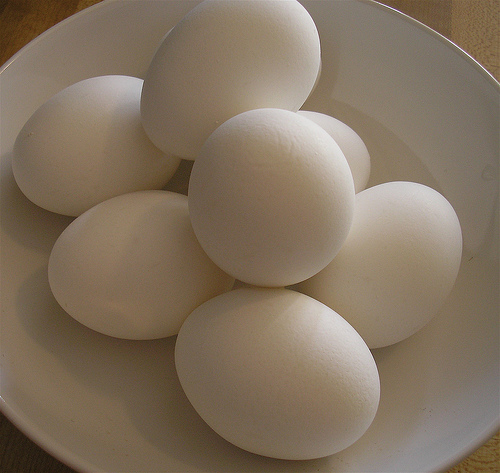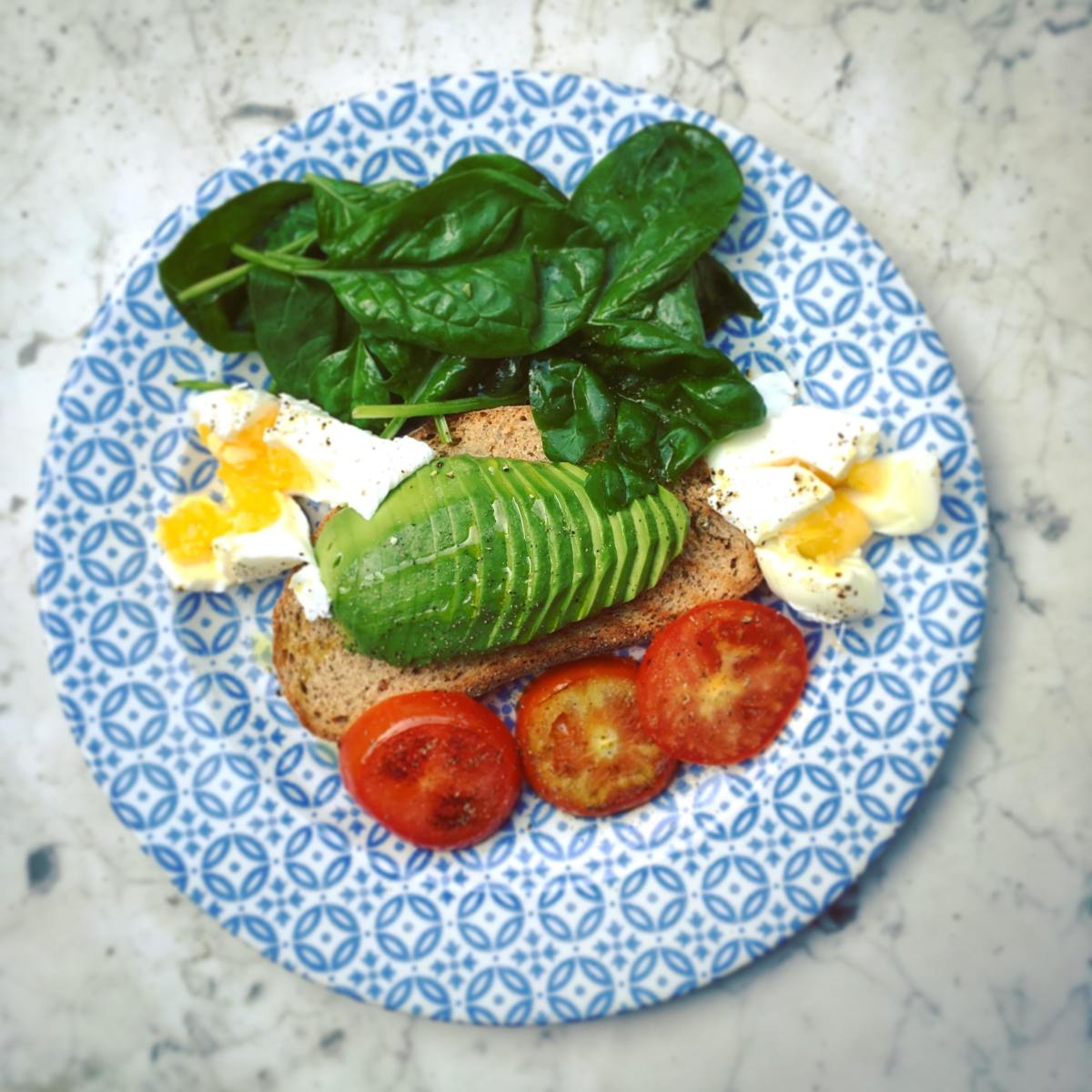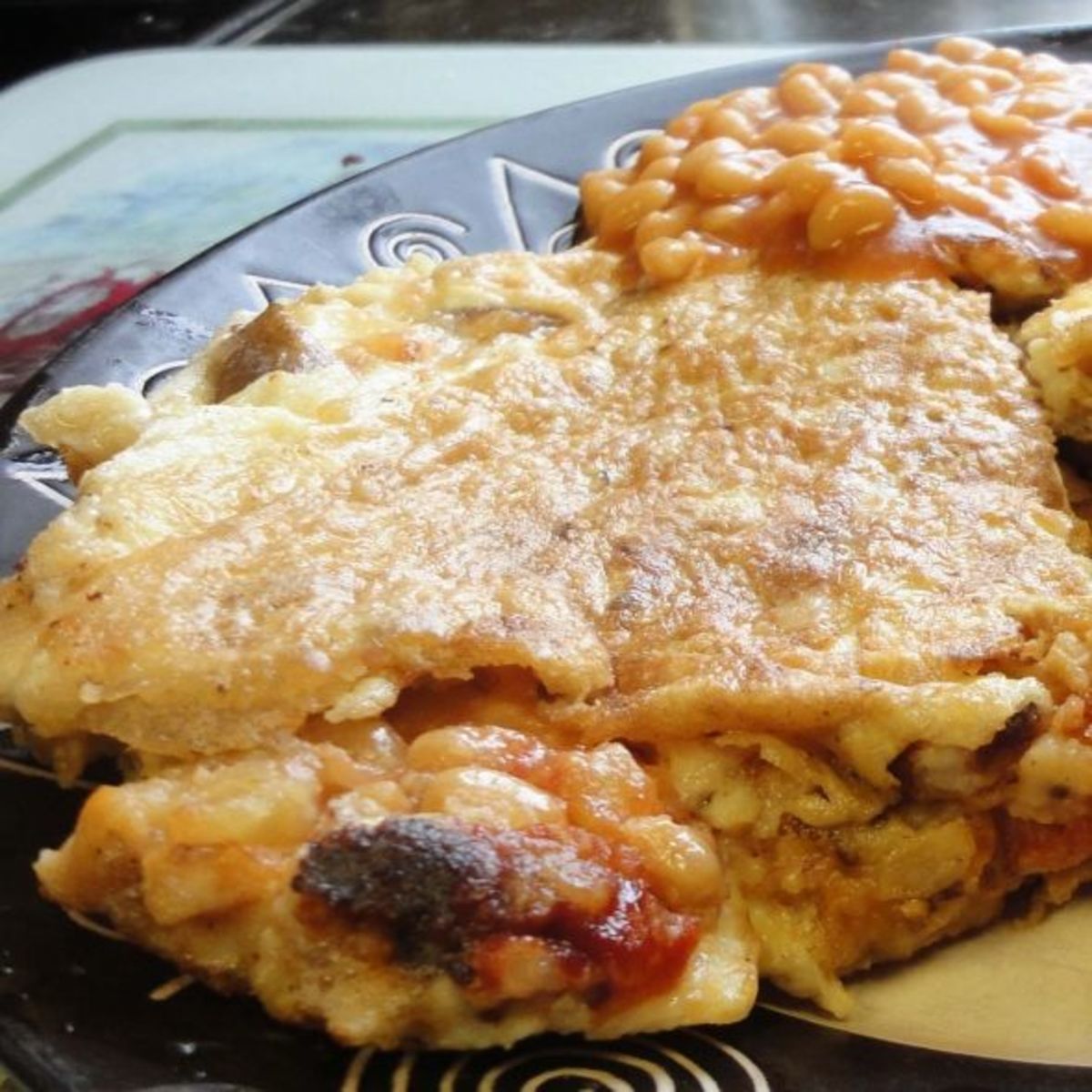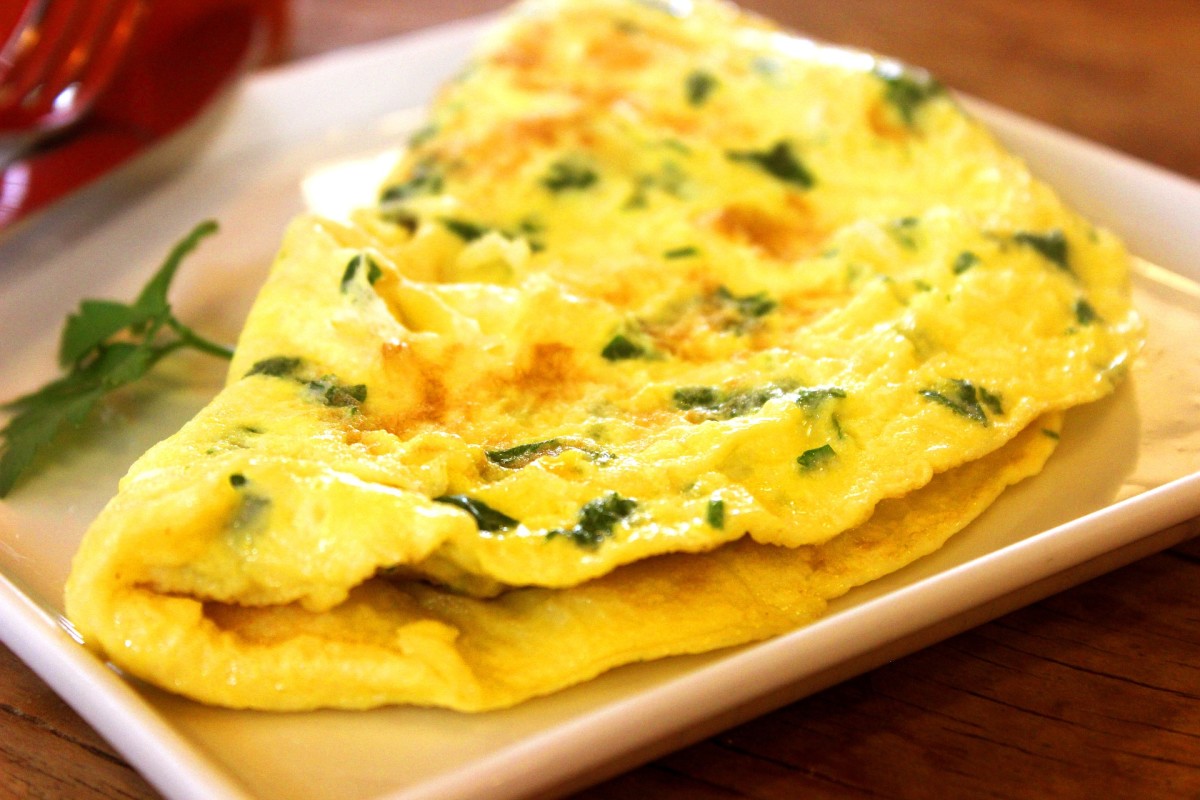Easy Home Egg Freshness Test and How to Boil Eggs that Don't Smell Eggy!

Those eggs sure have been sitting in the refrigerator door for ages…are they still safe to eat?
Also, I love a good egg salad sandwich, but am not so crazy about the eggy smell that permeates the house as I prepare and eat the sandwich…is there anyway around it?
I was just re-reading Harold McGee's classic food science book "on Food and Cooking" and I stumbled across the answer to both of these questions.
Firstly, how to know if your eggs are TOO old
Eggs age much slower in the refrigerator than they do at room temperature, about 4 times slower, and they can thus be stored safely for weeks kept chilled. But even at fridge temperatures, the egg is losing moisture daily through its shell, at the rate of about 5 milligrams of liquid per day.
This moisture loss (And a change in egg acidity over time) leads to flattened yolks and runny whites as the egg ages, but the moisture loss also gives home-cooks a reliable way to gauge the freshness of the egg.
As the moisture leaves the permeable shell, a small air pocket at the base of the wider end enlarges. After many weeks in the fridge, that air pocket will have grown large enough to cause the egg to actually float when dropped in water.
To test how fresh your eggs are, simply drop them in a large bowl of water. The quicker they sink, the fresher they are.
If they float…they are very very old and should not be eaten!
How to reduce the eggy smell of hard boiled egg making
According to McGee, the sulfurous smell created during the boiling of hard boiled eggs occurs as egg proteins are overcooked
These egg proteins get over coagulated and this creates an excess of hydrogen sulfide – which translates to an eggy smelling kitchen.
Fortunately, the answer is easy. Don't overcook the eggs.
Rapidly boiling water tends will overcook the whites of the egg before the yolks are completely set, causing eggyness. Simmering your eggs at about 90 degrees will result in a more uniformly cooked egg.
Also, since a rapid boil often causes the shells to crack and results in the certain overcooking of the exterior white, a gentle simmer is much preferred.
Hard boiled eggs are just cooked at 10 minutes and cooked dry at 15. Don't cook for longer than this. To prevent residual heat from continuing the cooking process after the eggs are removed from the pot, plunge the eggs in ice water or leave under cold running water briefly.
That's it - a little care and an easy trick or 2 and the end of eggy kitchens as we know them.
Get crackin!
- A 3 ingredient recipe for the best breakfast burrito...
Sometimes the easiest recipes truly produce the tastiest meals. Great chefs know that food doesn't have to complicated, and often, that the fewer ingredients you add, the better something will taste.... - Asparagus frittata recipe. Enjoy fresh Spring aspara...
Spring is the time to enjoy seasonal fresh asparagus. Nothing beats a freshly picked stalk of asparagus, and this easy frittata recipe highlights delicious asparagus in a meal that you can get on the table...








